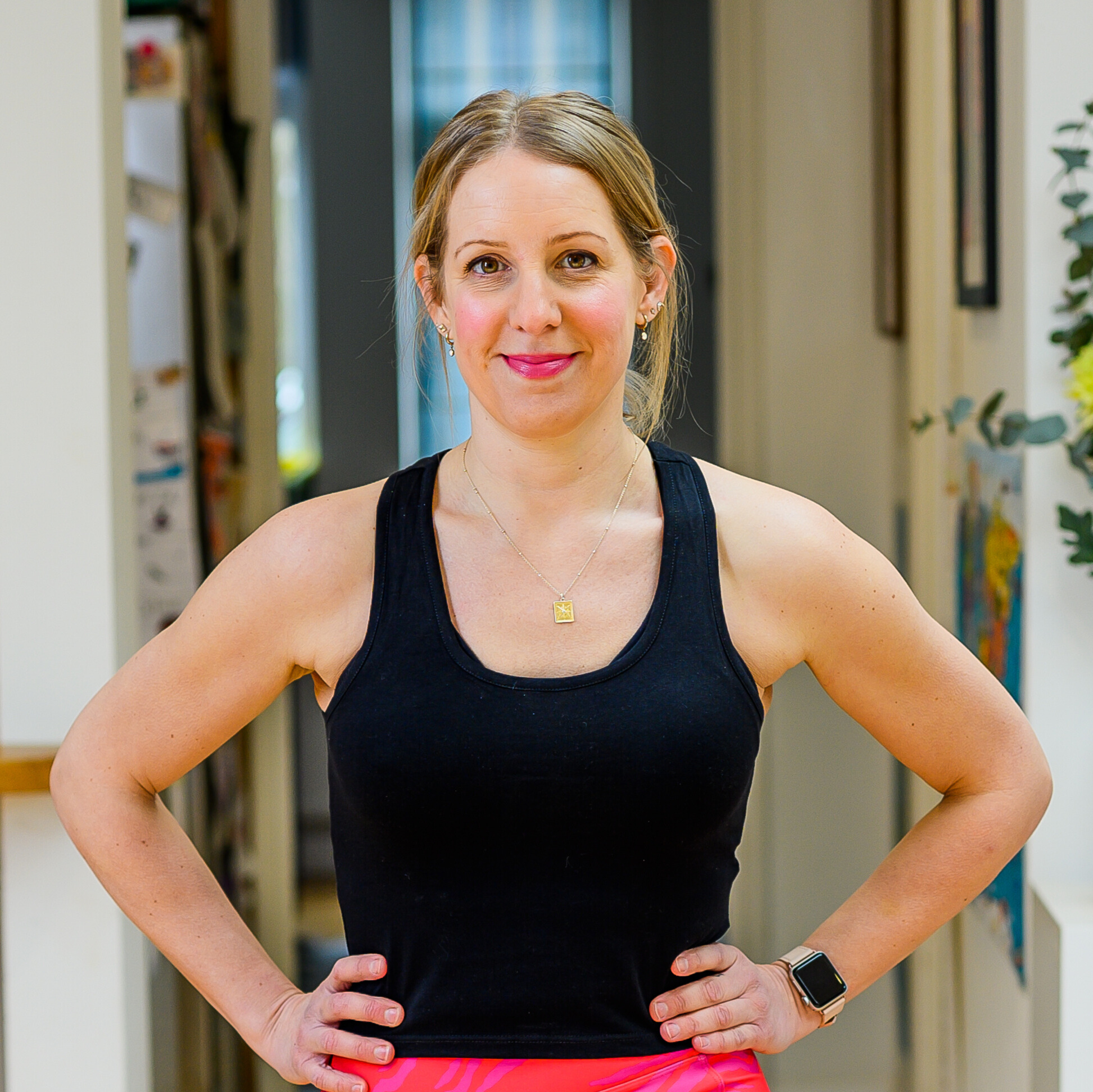Eight best protein powders for weight loss in 2024, picked by a certified trainer
Want to know the best protein powders for weight loss? From whey to plant-based options, I’ve tried them all

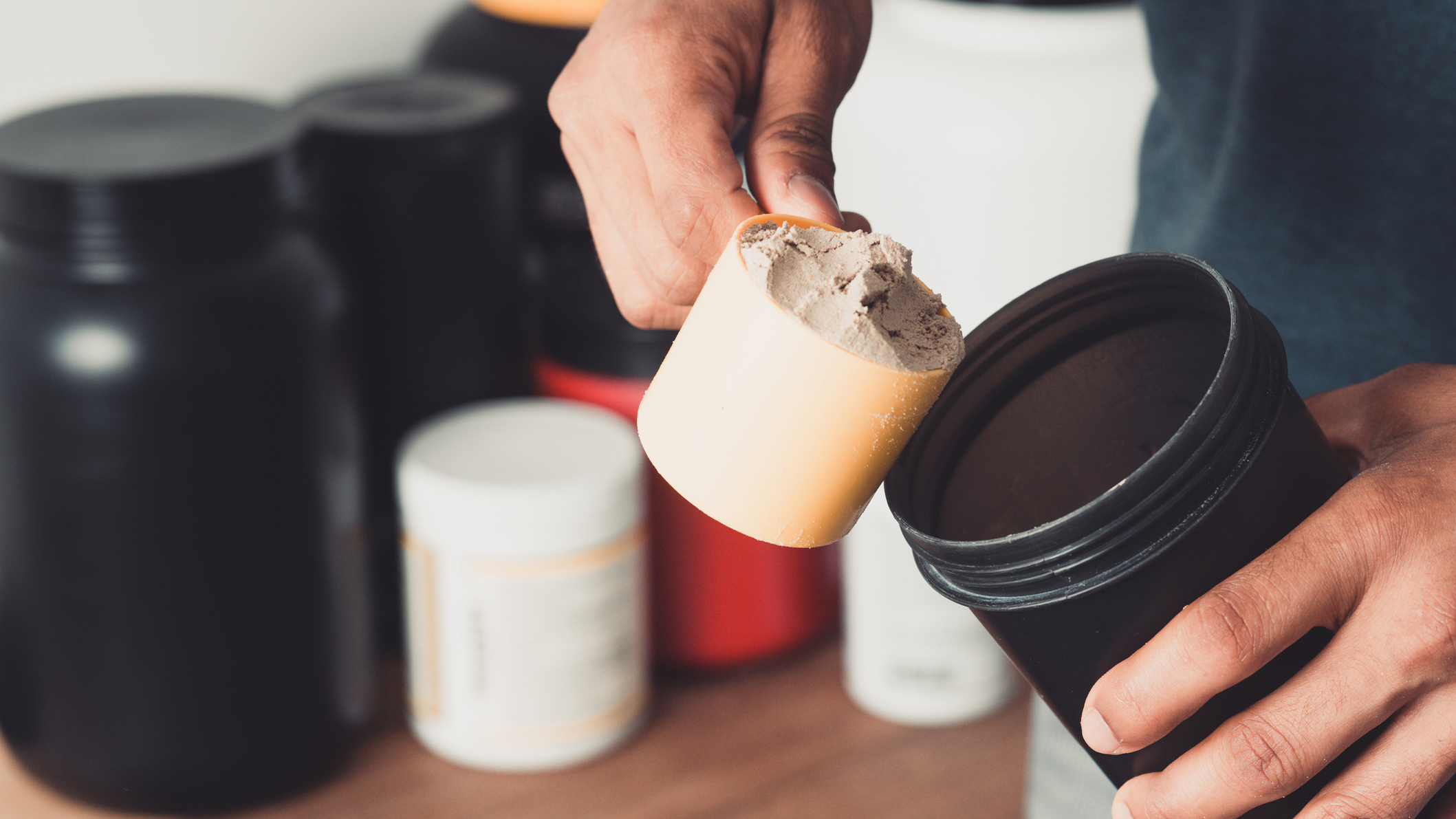
Start your week with achievable workout ideas, health tips and wellbeing advice in your inbox.
You are now subscribed
Your newsletter sign-up was successful
As a personal trainer, I’m always being asked about protein powders—specifically which ones are the best for weight loss. This macronutrient is essential for muscle growth and repair, but it can also contribute to satiety (how full you feel after a meal) reducing hunger pangs and helping with weight loss.
Registered dietitian Kylie Bensley, founder of Sulini Nutrition, says: “Weight loss occurs with a deficit of calories. Consuming protein powder alone will not cause weight loss but if that’s your goal then a lower calorie protein powder is ideal.”
If you’re using protein powder for weight loss specifically, I recommend finding one that’s low in fat, sugar and calories. I’ve spent the last ten years testing and reviewing these products, analyzing protein content, flavor, mixability, texture, value and additional health-boosting nutrients and vitamins. Here’s a list of the best I’ve tried.
Our expert panel
As well as testing out of all the protein powder products ourselves in line with our testing process, we also consulted with expert dietitians to talk about the benefits and potential drawbacks of using protein powders for weight loss.

Maddy Biddulph is a certified level 3 personal trainer and nutrition advisor who has been testing protein powders for a decade. Based in the UK, she helps busy moms prioritize their health and fitness, build muscle, lose body fat, and get into the best shape of their lives.

Kacie is a licensed and registered dietitian and a board-certified sports specialist in dietetics. She holds a bachelor’s degree in Nutrition and Dietetics and a Master’s degree in Nutrition and Exercise Science.
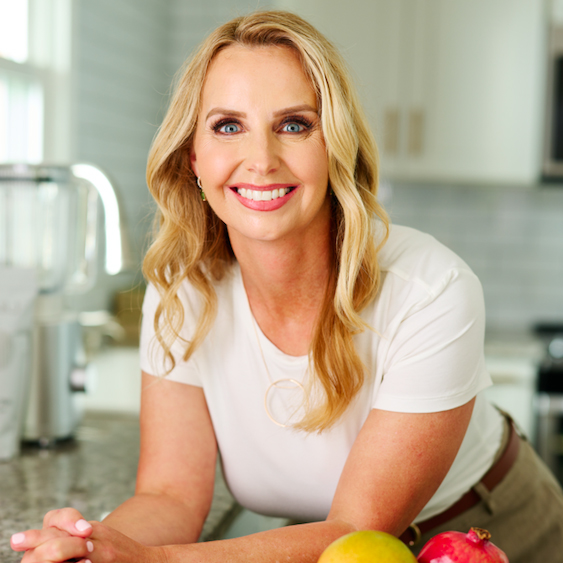
Kylie Bensley is a highly regarded clinical dietitian with a wealth of expertise in nutrition. With an unwavering dedication to patient care, Bensley has spent over a decade working in renowned medical facilities in Boston and Cambridge, MA. Throughout her extensive career, she has provided invaluable guidance to patients recovering from surgery, establishing herself as a leading and trusted authority in the field.
The quick list
Need a quick overview? Below you can find the best protein powders for weight loss that we’ve tested, all of which contain a high amount of protein with low carbs, sugar and fat.
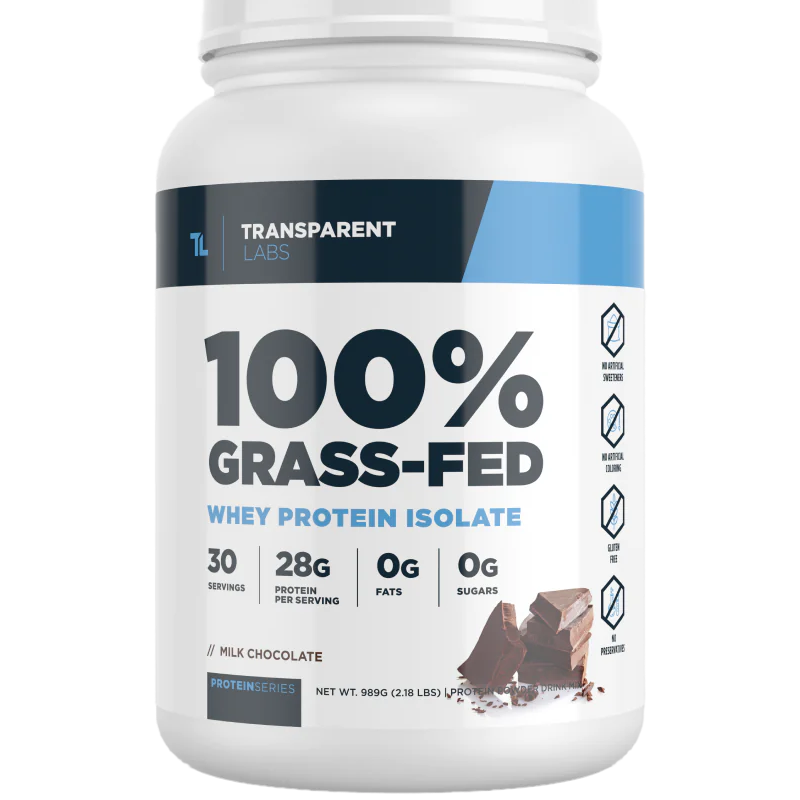
Packed with high-quality ingredients, this 100% grass-fed whey protein is expensive, but it’s a premium, protein-rich product with eight flavors to choose from. Sugar and fat-free, as well as low carb, it tastes great and mixes well with both water and milk.
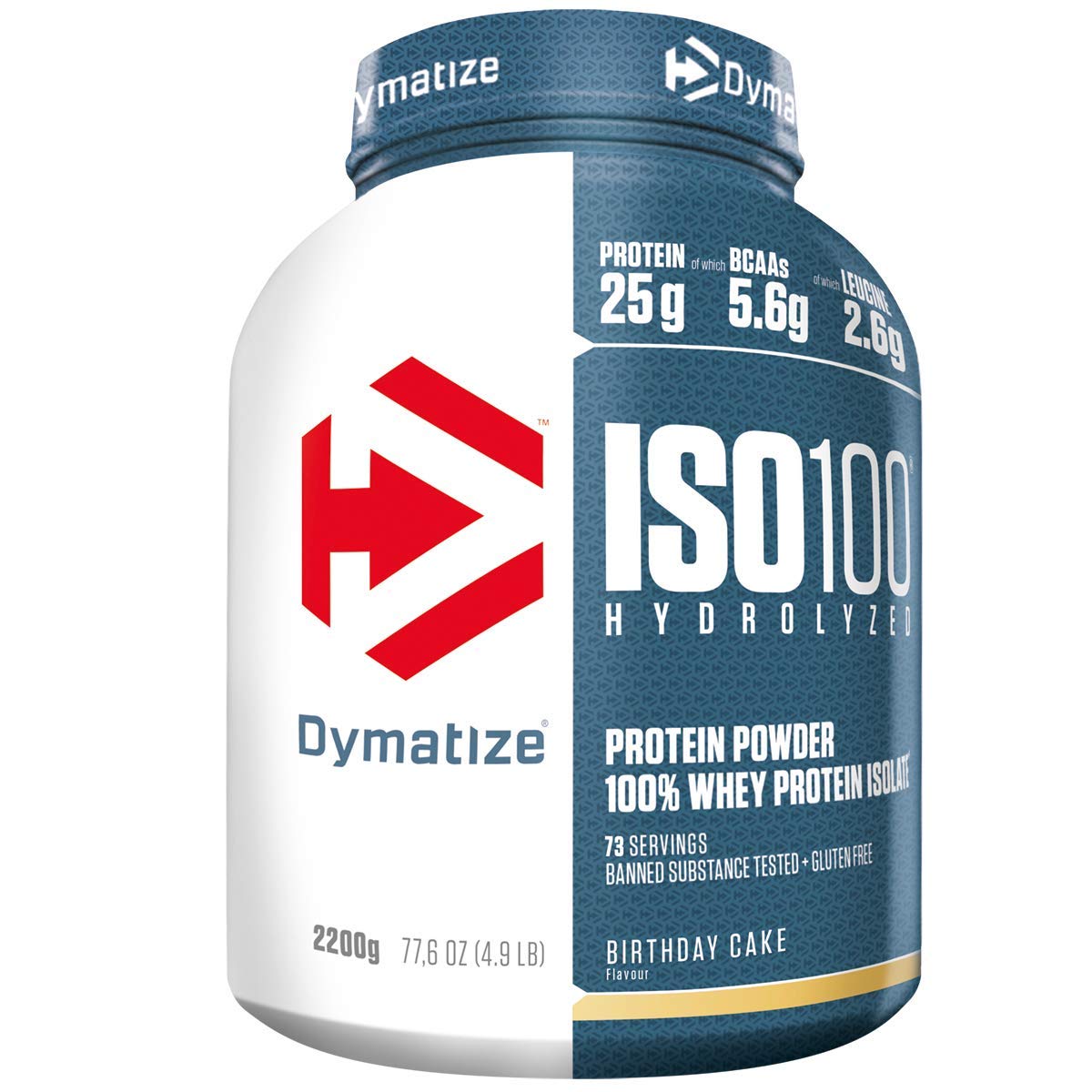
This whey protein isolate powder tastes indulgent and rich, despite being sugar and fat-free. It’s also one of the cheapest hydrolyzed whey isolates I’ve tested.
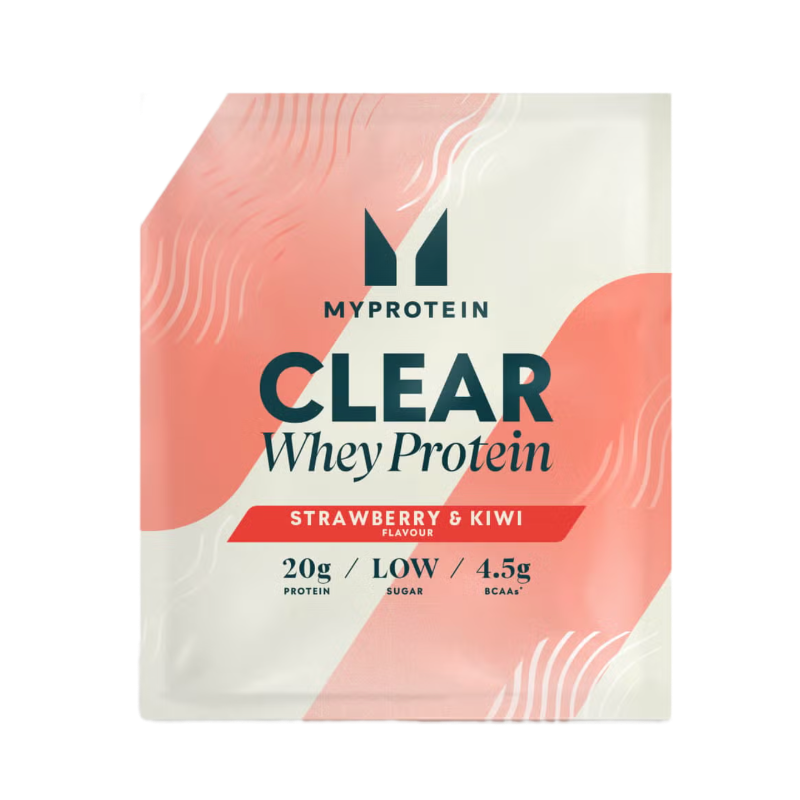
This high-protein powder is a great choice for people who don’t like milkshakes as it’s more of a juice consistency. Designed to be blended with water, it’s fruity and refreshing and I loved all the different flavors.
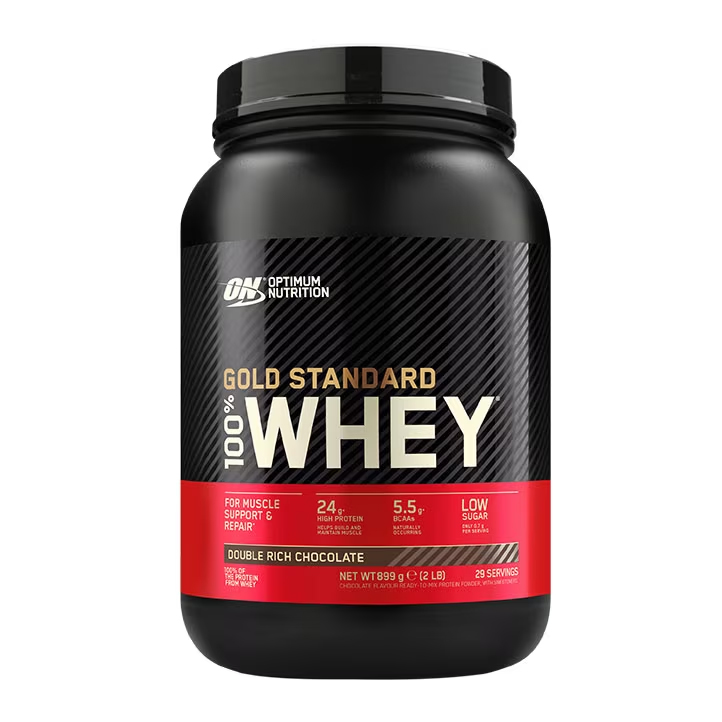
With over 20 options you’ll never get bored of the creamy flavors from Gold Optimal Nutrition. With 24g of protein per serving, it’s inexpensive and good value for money.
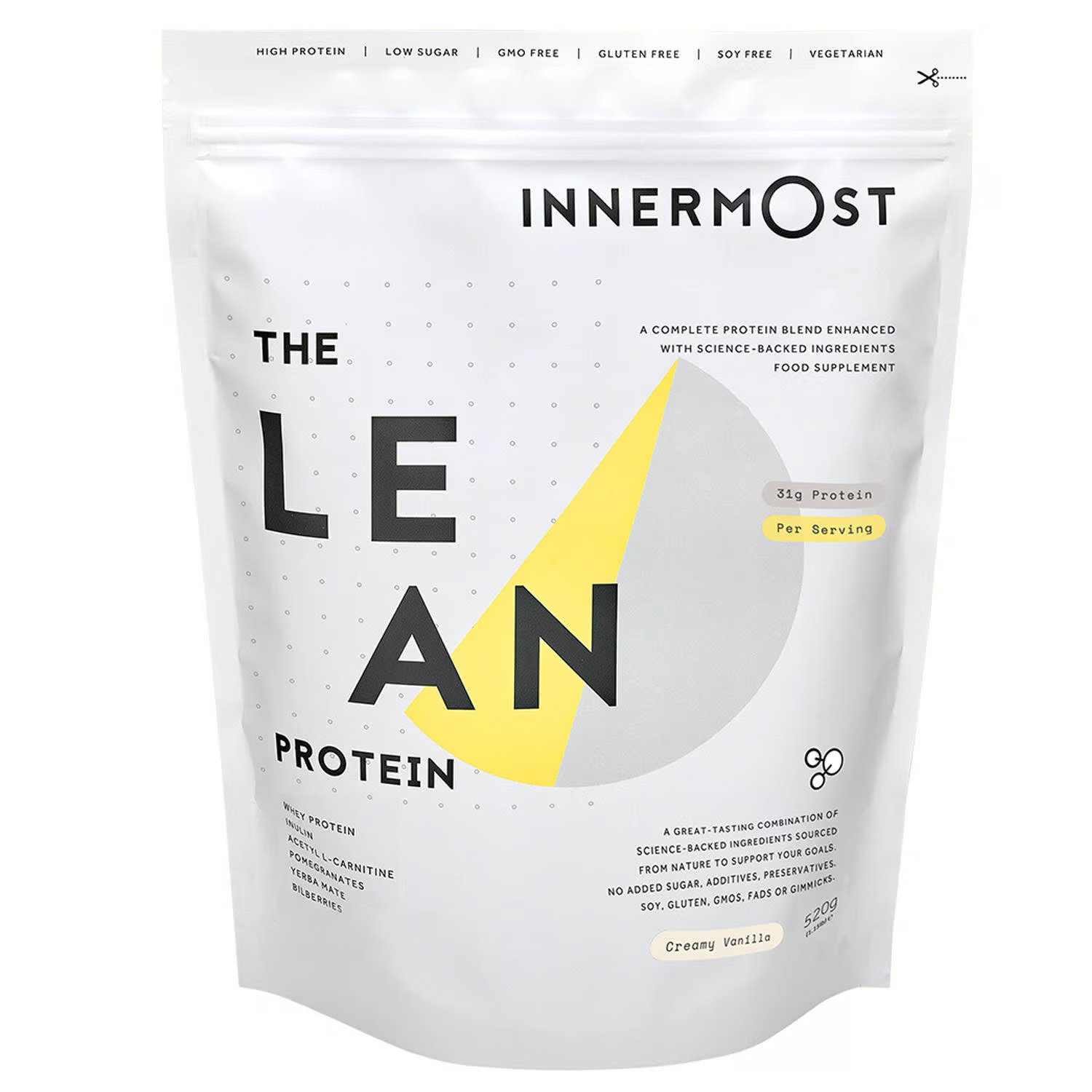
This powder has the highest protein content out of every product I've tested. Low in sugar and calories, it’s a great choice for anyone trying to lose fat and build muscle.
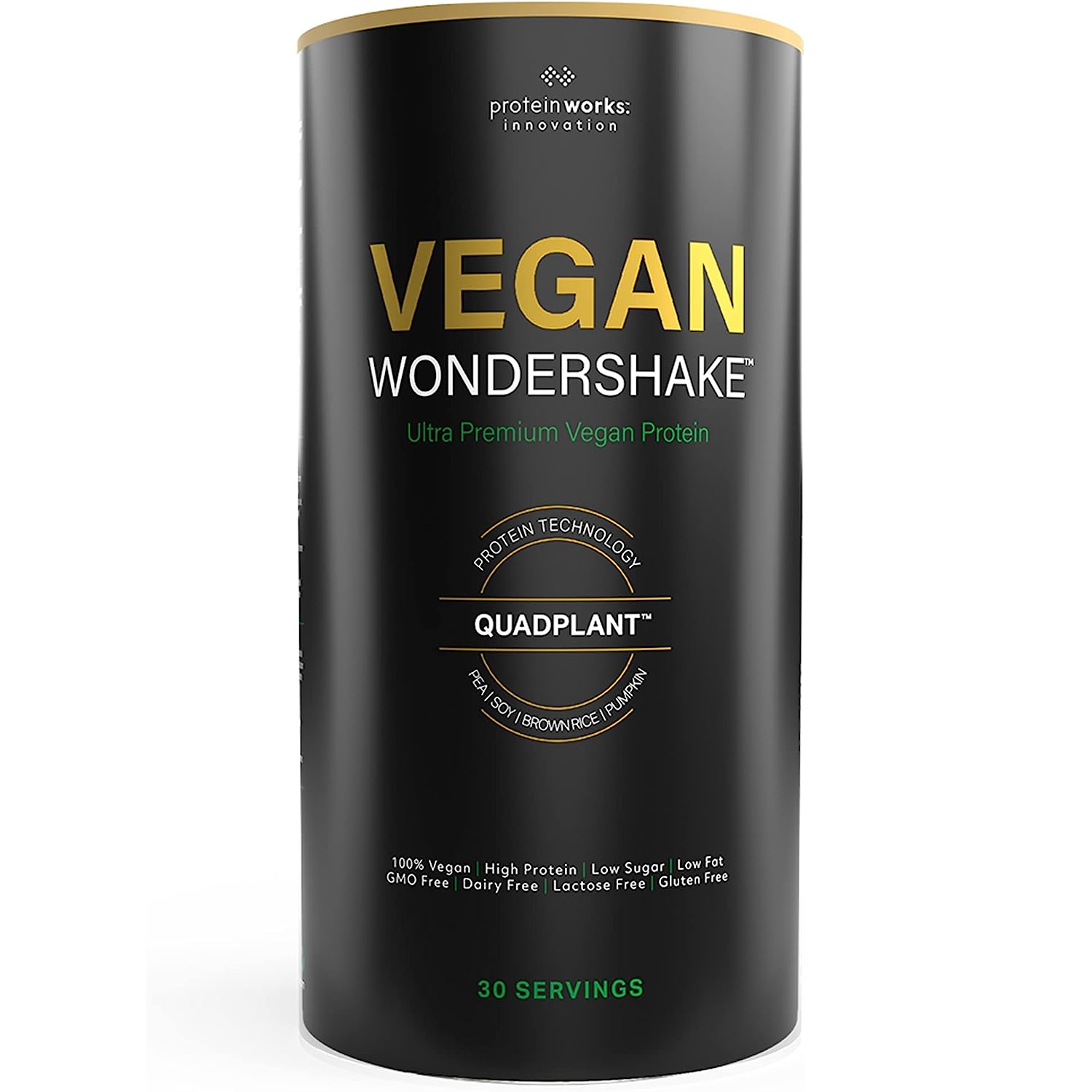
If you’re looking for a low sugar, low fat plant-based powder that delivers on taste, look no further than The Protein Works Vegan Wondershake. It’s on the pricey side, though.
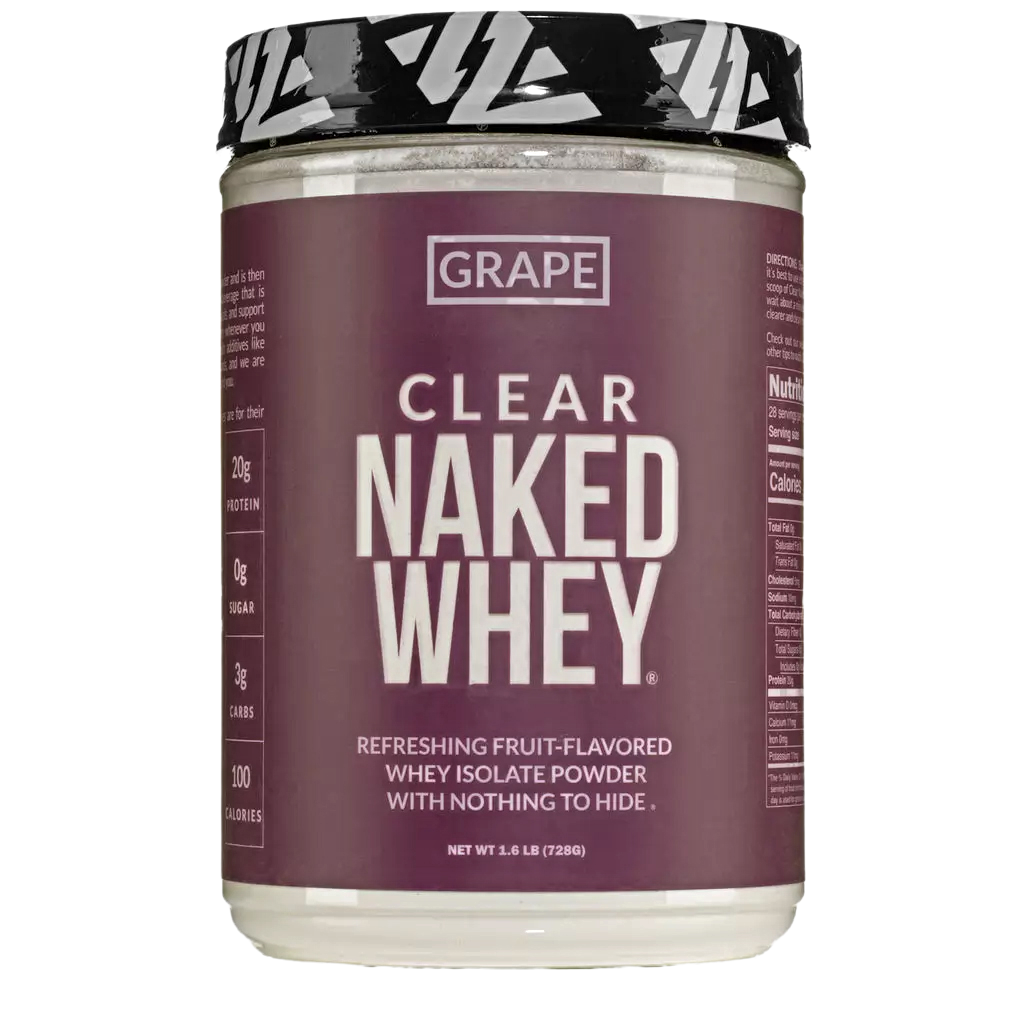
This clear, juice-like powder from Naked Nutrition has only six ingredients and doesn’t have artificial sweeteners, making it ideal for anyone sensitive to sucralose and aspartame.
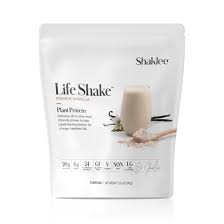
This is a meal-replacement shake, so it's slightly higher in calories than the other options. However, it packs in 24 additional minerals and vitamins along with a prebiotic.
The best protein powders for weight loss
Best overall

1. Transparent Labs 100% Grass-fed Whey Protein Isolate
Our expert review:
Specifications
Reasons to buy
Reasons to avoid
Taste, texture and mixability: I tested the Milk Chocolate flavor and it really hit the spot. Just the right balance of sweetness without being sickly, and it’s missing the synthetic chalky aftertaste cheaper protein powders often have. It mixes well with both milk and water (my favorite was 50/50 of each) and behaves well when blended into pancake batter, muffins, and oatmeal. The main drawback is the price. It is one of the most expensive protein powders for weight loss that I’ve tested, but the high-quality ingredients and taste justify this.
Nutrition, ingredients and additives: Transparent Labs’ Whey Protein Isolate has a clean profile and even cleaner taste, and it’s refreshingly rich considering it is sugar and fat-free. With 28g of high-quality isolated protein per scoop, it’s easily digestible and delicious. Its whey is sourced from grass-fed, hormone-free American cows. The powder is also free from gluten, preservatives, artificial sweeteners and food dyes. It has a good flavor range, from classics like Milk Chocolate, French Vanilla and Strawberry Milkshake to more interesting ones such as Mint Chocolate Chip and Cinnamon French Toast.
Best value
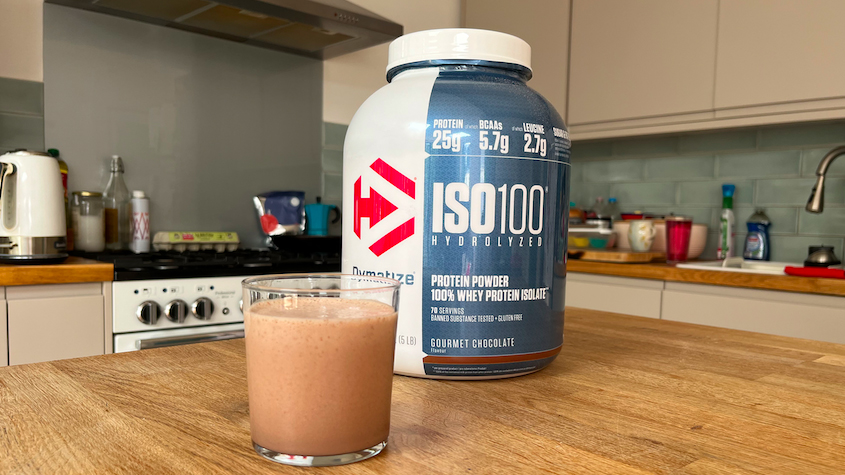
2. Dymatize ISO100
Our expert review:
Specifications
Reasons to buy
Reasons to avoid
Taste, texture and mixability: I tested the Gourmet Chocolate flavor, which tastes indulgent and rich when mixed with milk (both regular and plant-based). This is also one of the very few protein powders that tastes great with water. It is such a fine powder that it mixes very well, and I didn’t find any lumps, even after a quick 30 seconds of shaking. I added it to batter mix and it gave my pancakes a strong chocolate flavor, which my kids loved. I’ve often found that low-sugar and low-fat powders can taste a bit bland, but this product offers a big bang for your buck on both taste and quality.
Nutrition, ingredients and additives: This powder is made from hydrolyzed whey, which means it has been filtered to remove most of the sugars and fats. At around a dollar per serving, this product is great value. Gluten-free, and mostly free of lactose and cholesterol, it has 16 flavors including classics like fudge brownie and chocolate peanut butter. Some versions have sucralose, artificial flavors and sweeteners, while others have Stevia and natural flavors, so check your label if you have sensitivies to these ingredients.
Best juice
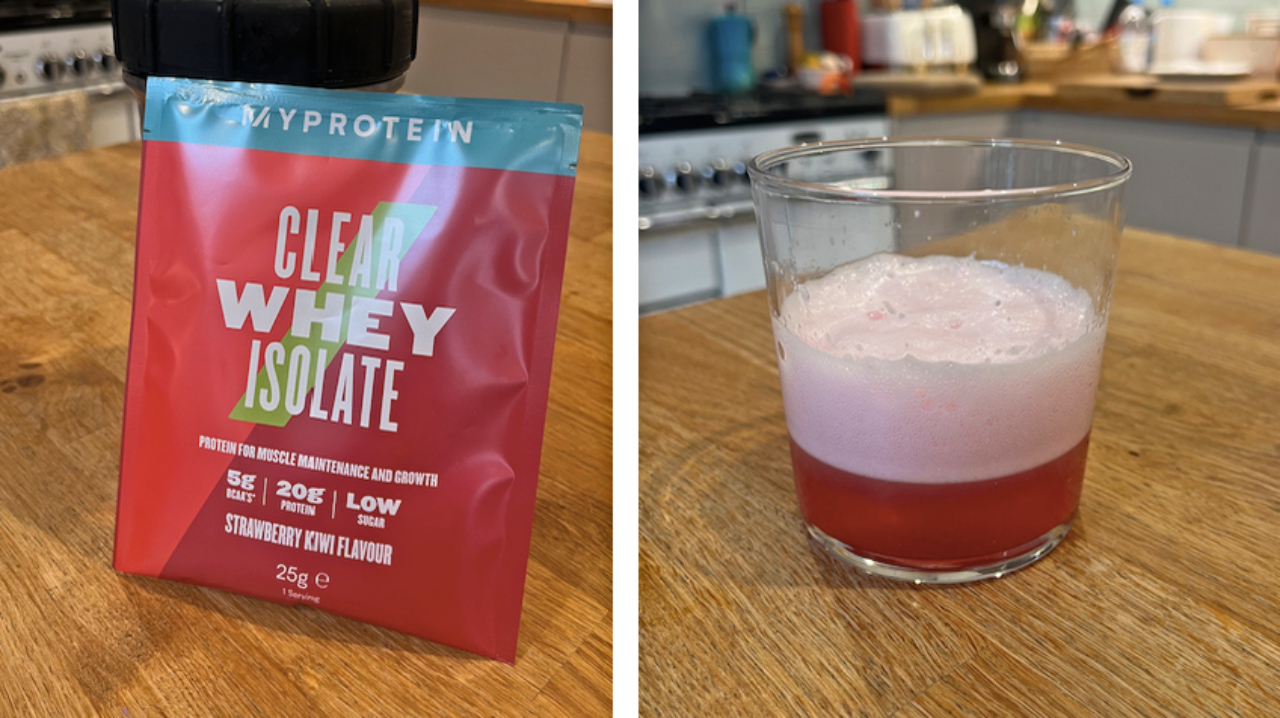
3. MyProtein Clear Whey Isolate
Specifications
Reasons to buy
Reasons to avoid
Taste, texture and mixability: I tried the strawberry kiwi flavor and it’s the best-tasting protein mix I’ve tested. It’s more of a refreshing juice drink than a milkshake, which I prefer, and has a fine consistency that mixes well with water. I found that it blended well with pancake mix and I imagine the tropical flavors would work brilliantly in high-protein ice lollies. Once you’ve mixed it together, you need to wait for the natural foaming to settle. It says 15 seconds on the packaging, but I found it was more like a minute before the foam reduced, and even then it still had some bubbles. The only reason it’s not at the top of the list is because it has a slightly lower protein content per serving than other options, though it’s still a brilliant option if weight loss is your main goal.
Nutrition, ingredients and additivies: Like Dmyatize, this product is made from hydrolyzed whey. It comes in 10 flavors: apple, mojito, orange, orange mango, pineapple, raspberry, lemonade, tropical dragon fruit, watermelon, and strawberry kiwi. It has 20g of protein per 25g serving, which is lower than other entries in this guide, but it’s got the lowest calorie content at 85kcal. It’s suitable for vegetarians but not vegans, or anyone dairy-free, as it contains milk. It also contains a sweetener (sucralose) that some people may be sensitivie to.
Best creamy option
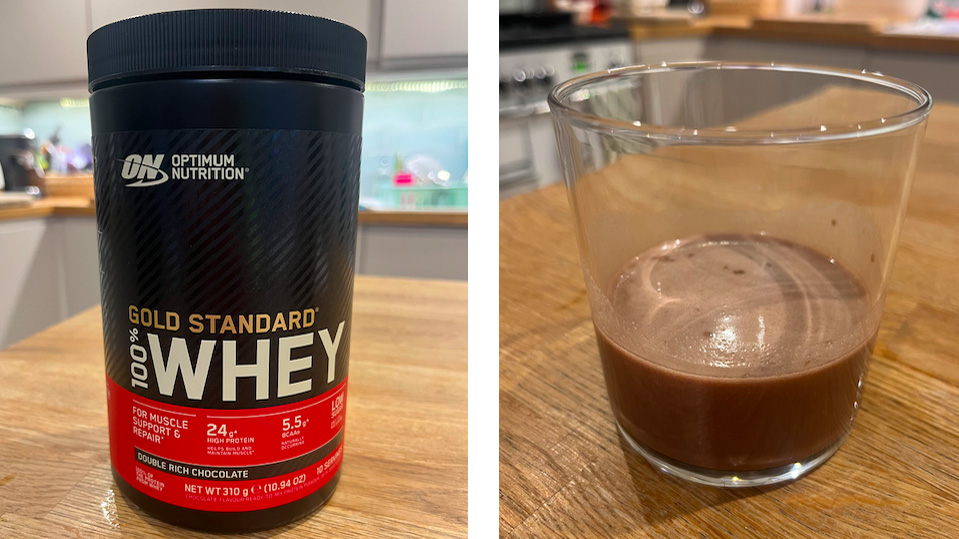
Specifications
Reasons to buy
Reasons to avoid
Taste, texture and mixability: I tested the Double Rich Chocolate flavour with 120ml cold water, as recommended on the packet directions. When mixed with water the product has a strange aftertaste and runs a little thin, but I didn’t find this happened when I tried it with milk instead. In its milkshake form, the drink has a dark chocolate flavour, which is a little bland but not too sweet. It also had a slightly chalky feel and left some residue in my glass after drinking. I didn’t love it as a drink (although I'm aware it's a favorite with other Fit&Well team members) but found it worked well in my oatmeal and pancakes.
Nutrition, ingredients and additives Optimum Nutrition is popular brand, and the company's flagship product is the Gold Standard 100% Whey. It's a versatile and price friendly option, which comes in a wide variety of flavours. It contains soy, so isn’t suitable for anyone with related allergies. It also contains Acesulphame potassium as a sweetener, which I found over-powering.
- Read our full Optimum Nutrition Gold Standard 100% Whey Protein review
Best for protein content
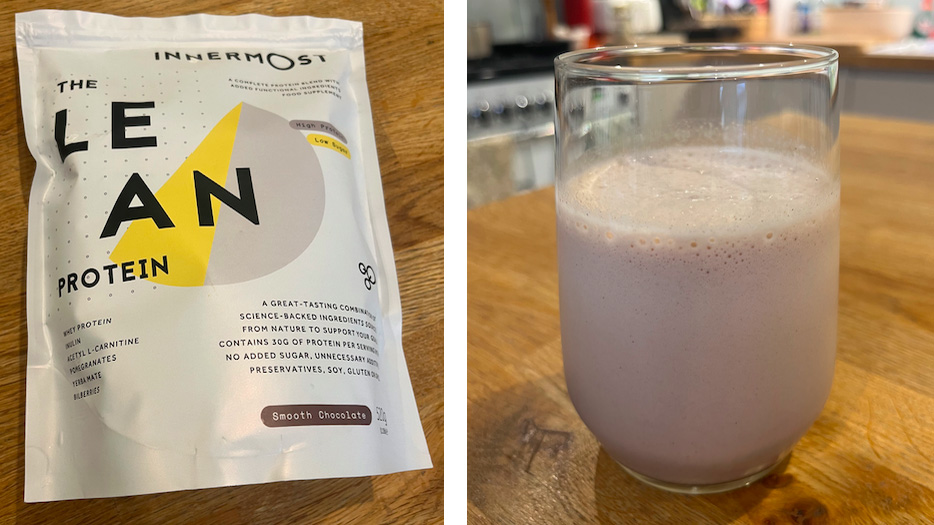
5. Innermost The Lean Protein
Our expert review:
Specifications
Reasons to buy
Reasons to avoid
Taste, texture and mixability: I tested the 'Smooth Chocolate', which was really tasty. It had the right balance of subtle sugary flavour without being sickly or overwhelming. The texture was spot on—light and airy. It blended easily with no clumps and had a thick, smooth consistency. I tested it with both cow’s milk and water; I have to admit it tasted better with milk. I also mixed the powder into pancake batter and my kids loved it. It comes in a resealable bag, but doesn’t have a measuring scoop, which was a shame.
Overview: Innermost's Lean Protein has a high protein count (31g per 40g serving) and is packed with weight-loss supplements, including acetyl L-carnitine, inulin and Yerba mate. But we should be wary of so-called ‘weight-loss’ ingredients added to protein powder, says Vavrek. “Additives, such as acetyl l-carnitine, don’t have any proven weight loss benefits. No supplements or additives will increase metabolism or burn fat.” These additives are unlikely to do any harm, but they won't help weight loss.
The powder has a higher calorie count than the other products in this list, so be mindful of this when adding it to your diet. It also contains sweeteners, so should be avoided by people with sensitive stomachs.
Best vegan
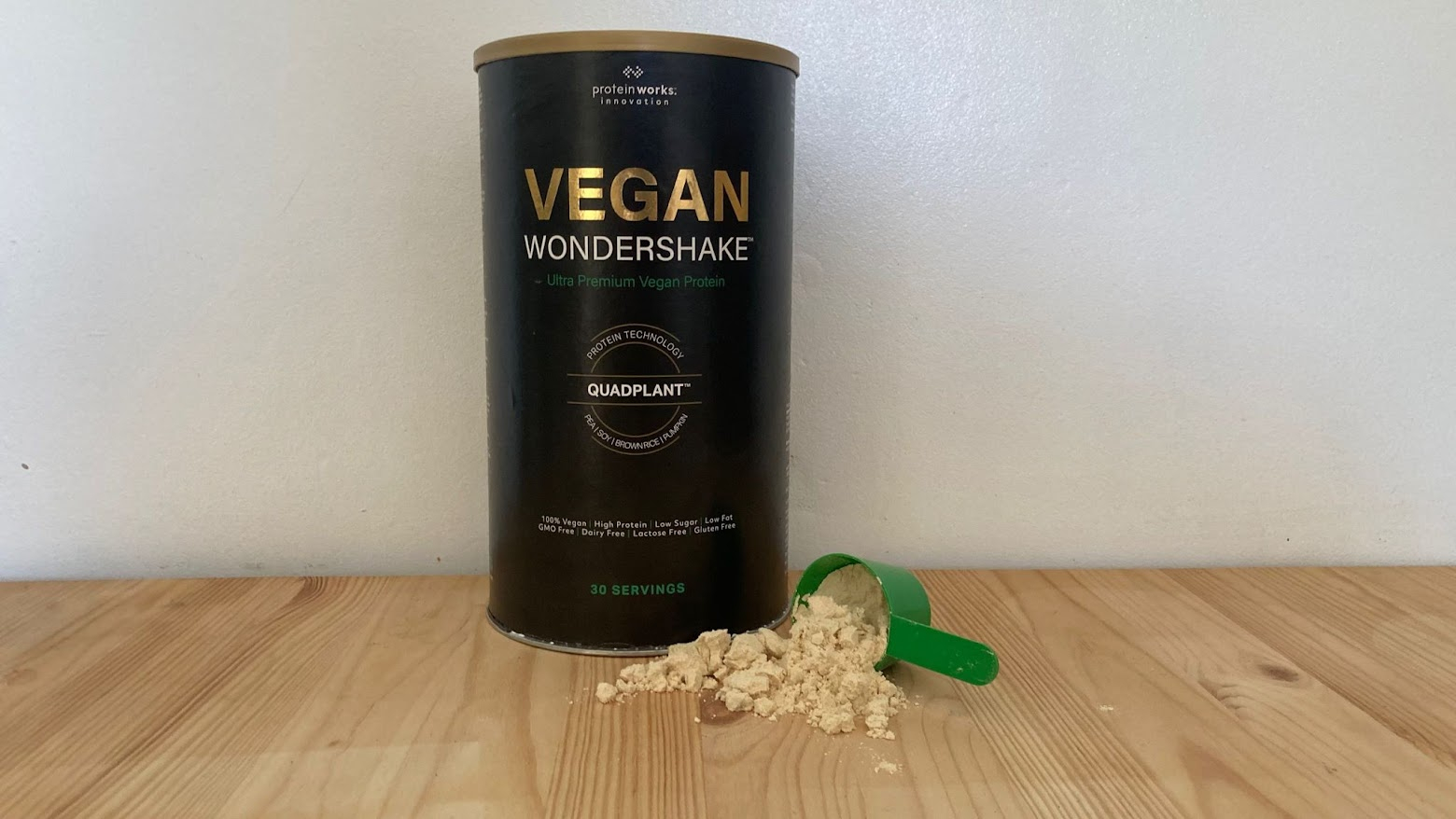
6. The Protein Works Vegan Wondershake
Our expert review:
Specifications
Reasons to buy
Reasons to avoid
Taste, texture and mixability: A lot of vegan shakes are grainy, but the Vegan Wondershake is an exception to this rule, delivering a smooth, creamy texture when mixed with either water or milk. It tastes great too; I tried the chocolate caramel biscuit flavor, which gave an enjoyable Biscoff-esque taste. If you want something a bit plainer to mix into smoothies, there are nine other options, ranging from vanilla and double chocolate to chocolate peanut cookies and strawberries and cream. - Reviewed by Harry Bullmore
Nutrition, ingredients and additives: This is a solid option for those following a vegan diet, with a respectable 25g of protein in a 30g serving. It has a remarkably low calorie count, at 89kcal, and comes in plenty of pleasing flavors. It's derived from five different plant-based sources: pea, soy, pumpkin, sunflower seed and brown rice. The company stops short of describing this as a complete protein (a protein source containing all nine essential amino acids, required by the human body) but they do say that "each protein has it's own nutritional profile, meaning you benefit from a more rounded amino acid profile." Unfortunately, it contains Sucralose, which can cause stomach upset in some people. It also contains DigeZyme® , which may help with vitamin and mineral absorption, but
Best for juice fans
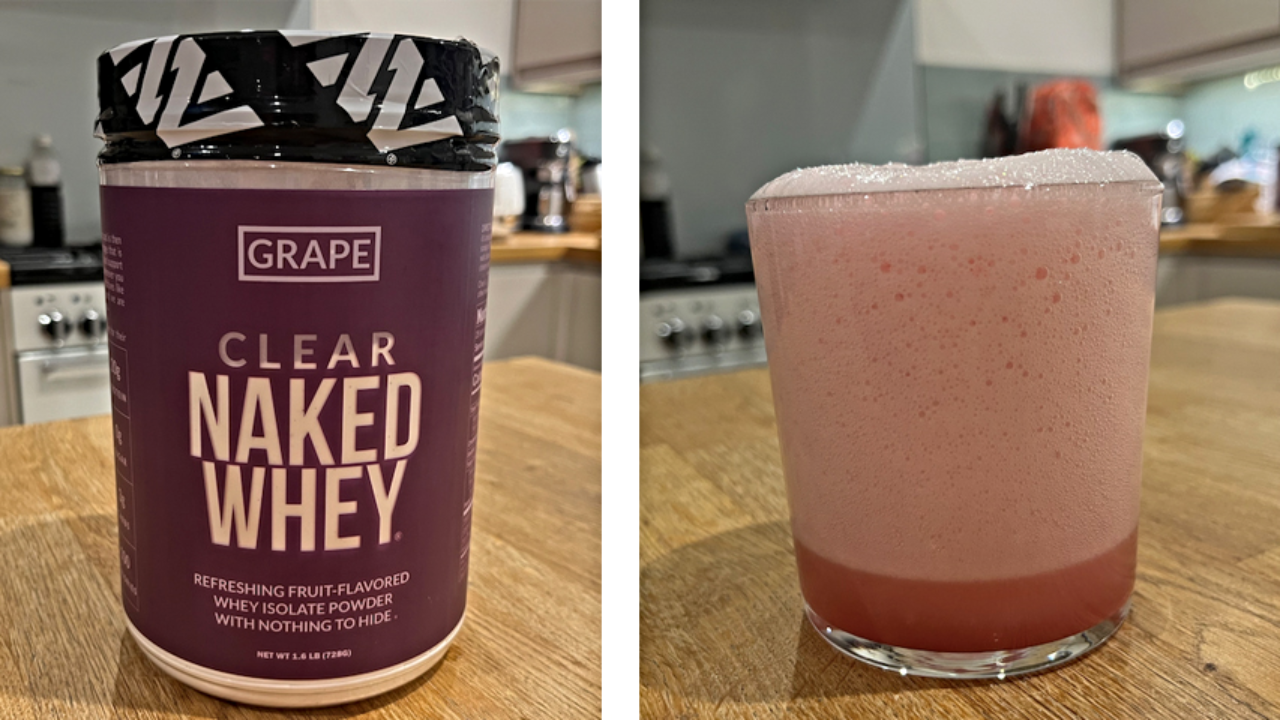
7. Naked Nutrition Clear Naked Whey (Grape)
Specifications
Reasons to buy
Reasons to avoid
Taste, texture and mixability: Clear Naked Whey is a bit different from your usual protein drink and rather than the milkshake flavor and consistency I’m used to, it’s more of a juice. You mix it with cold water—this stuff foams up a lot when you shake it—then the natural foaming dissolves after about a minute. It doesn’t need too much shaking as the powder is very fine. I tested the grape flavor, which has a nice mix of sweet and tart and is similar to a flavored water drink. I noticed a bit of a gelatin taste in the first few drinks, but it didn’t bother me. It’s refreshing, fairly high in good quality isolate protein (20g per 26g serving) and low carb. And if you don’t like the sound of grape, it also comes in lemonade and fruit punch flavors.
Nutrition, ingredients and additives: Naked Nutrition’s Clear Naked Whey isolate powder is high in protein (20g per 26g serving), low in carbs and has 0g of sugar and 0g of fat. Just as with all of the firm’s products, it doesn’t contain additives like artificial sweeteners, flavors or colors (it uses vegetable juice for color). The product is also lactose-, GMO-, gluten- and soy-free and has just six ingredients. It comes with extras (i.e. vitamin D, iron, calcium and potassium) and is 100 calories per serving—making it a good choice for anyone trying to lose weight, or reduce their sugar and fat intake.
Best meal replacement
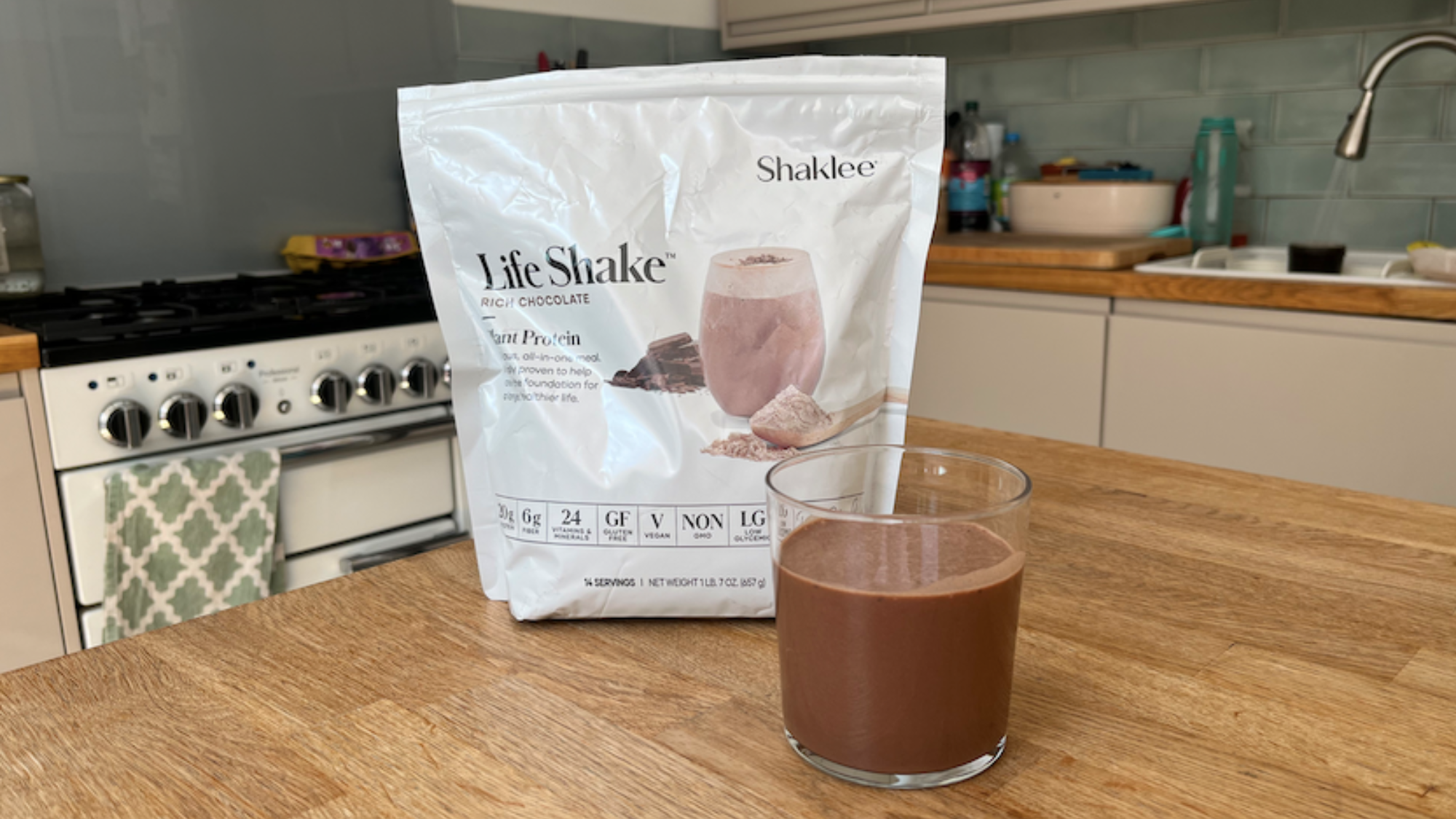
8. Shaklee Life Shake
Specifications
Taste, texture and mixability: I’m not normally a fan of the taste of pea protein but this is a delicious product, which isn’t too sweet and is the right side of chocolate-y. It has great mixability, doesn’t take long to blend and is smooth with no lumps. I tried it with both cow’s milk and water, and while it had a creamier texture with the former, it also tastes good with the latter. However it does have a slightly chalky aftertaste. I tried it in some homemade protein bars and the rich chocolate flavor came through well, too. I was pretty impressed with this product but it’s on the expensive side, at $109.05 for a 675 gram bag.
Nutrition, ingredients and additives: This is a gluten-free, vegan plant protein powder that offers 20g of protein per serving. It has higher calorie count than other options on this list at 170kcal, but if you’re using it as a meal replacement that’s still a relatively low number. It packs in 24 vitamins and minerals, including vitamin D, A, C and E, as well as iron and calcium. There’s limited evidence to support the use of multivitamin supplementations for health, but there’s also little evidence showing that they can cause harm. There’s a prebiotic thrown into the mix as well, which could improve your gut health by promoting the production of “good” bacteria in your intestines.
More tried-and-tested powders
The above protein powders are the best that I’ve tested, offering great taste and consistency with minimal fat and sugar. However, we’ve also tried out the below options. They didn’t quite make it into the top of our list, but here’s how they fared in our testing.
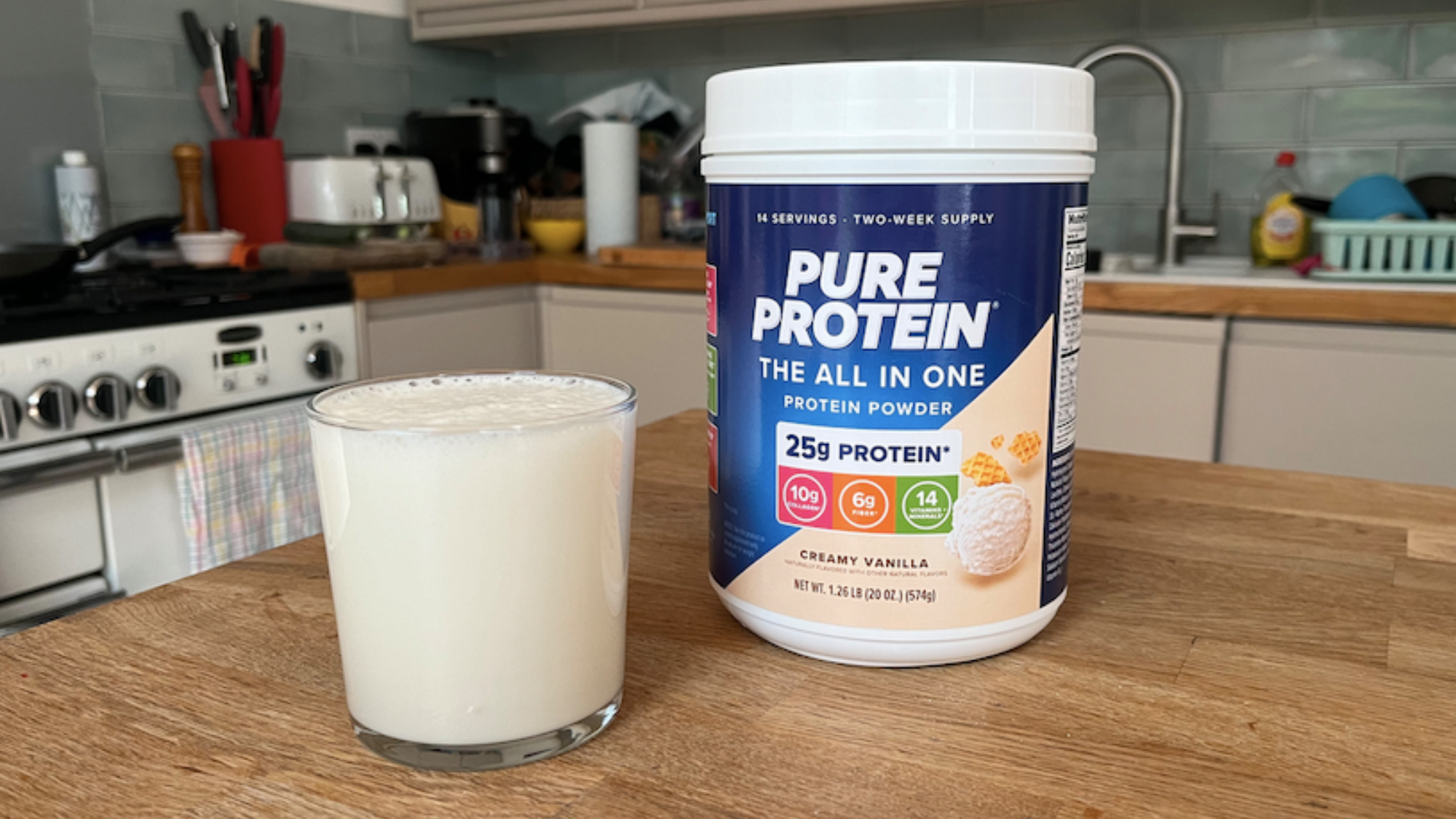
Pure Protein Powder
Specifications
Reasons to buy
Reasons to avoid
Taste, texture and mixability: I had high hopes for this whey protein, which is packed with collagen, fiber and extra vitamins and minerals. It sounds good on paper, but unfortunately it tastes too sugary. I tried it as a plain shake, in overnight oats, as well as in a healthy carrot cake. I also mixed it with frozen fruit for a high protein smoothie. In each case it was too sweet for my liking, even though the sugar content is under 1g.
Overview: The Pure Protein whey protein powder (creamy vanilla) is packed with 10g collagen, 6g fiber and 14 vitamins and minerals including B12, A, C, D E, as well as zinc and iron. It has 25g of protein per 41g scoop, and is relatively cheap at $44.99 for a two-week supply (20 oz.). It does have a pretty long ingredients list and it’s high in carbs (9g per serving), so this isn’t ideal for anyone on a low-carb diet. But it’s inexpensive at $44.99.
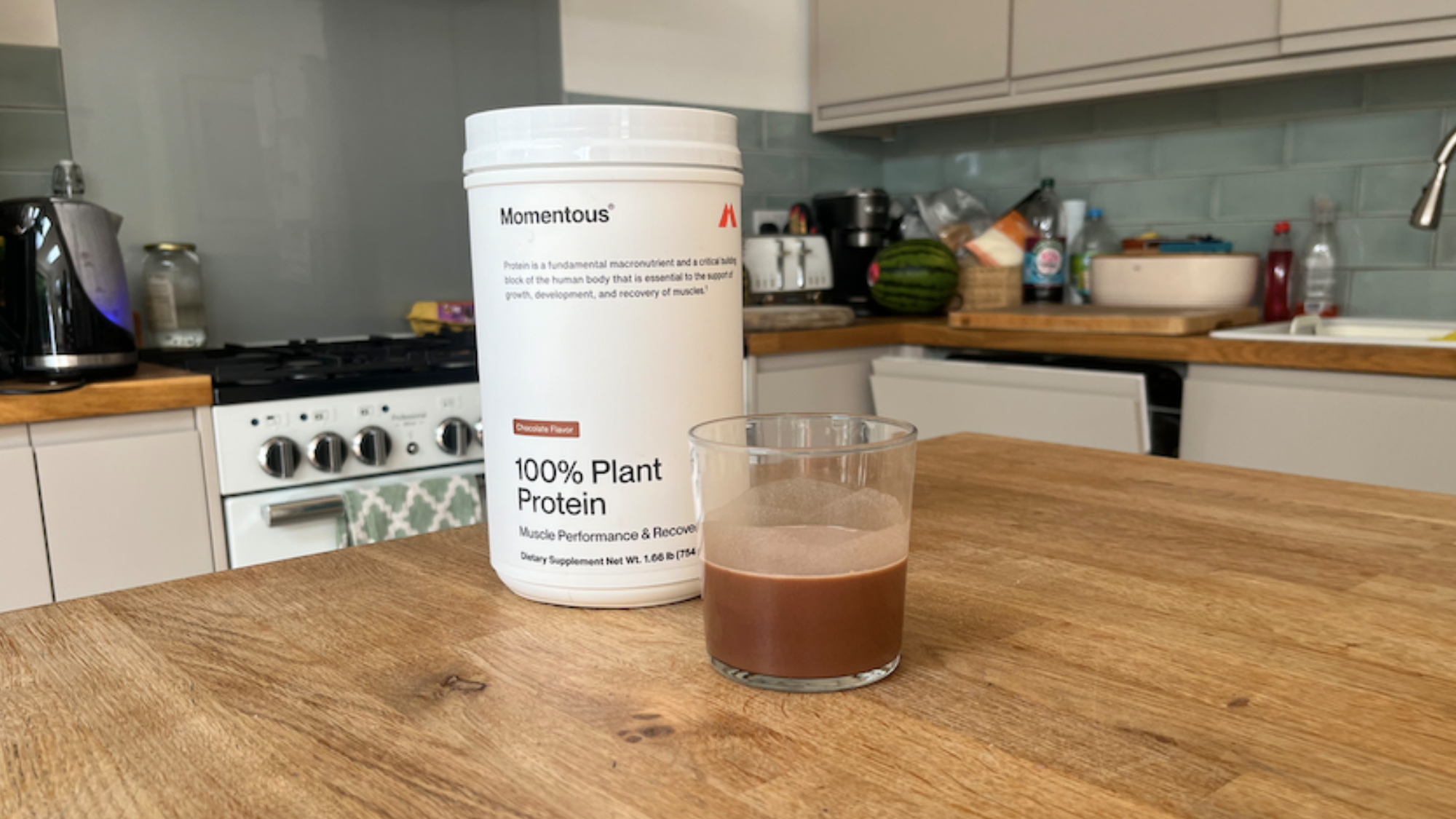
Momentous 100% Plant Protein
Specifications
Reasons to buy
Reasons to avoid
Taste, texture and mixability: This protein powder mixes really well and quickly, and comes out smooth with no gritty texture or chalky aftertaste. The chocolate flavor isn’t too overpowering or sweet; in fact it’s almost a bit bitter, so if you have a sweet tooth this product might not be to your taste. I’m a big fan of dark chocolate, the darker the better, so I found it very pleasant. I blended it into my oatmeal and pancake batter, and it was very tasty. At $49.95 for 1.66 lb (754g) it’s also good value, and a good choice for anyone looking for an affordable vegan protein.
Nutrition, ingredients and additives: Momentous 100% Plant Protein (chocolate flavor) comes in minimalist packaging. It has 20g of protein per scoop as well as added iron and potassium. It has a fairly clean ingredients list, although it is a little high in carbs and calories (10g and 140kcal per serving). Unfortunately, that protein and calorie content doesn't compete with our top vegan pick, the Vegan Wondershake.
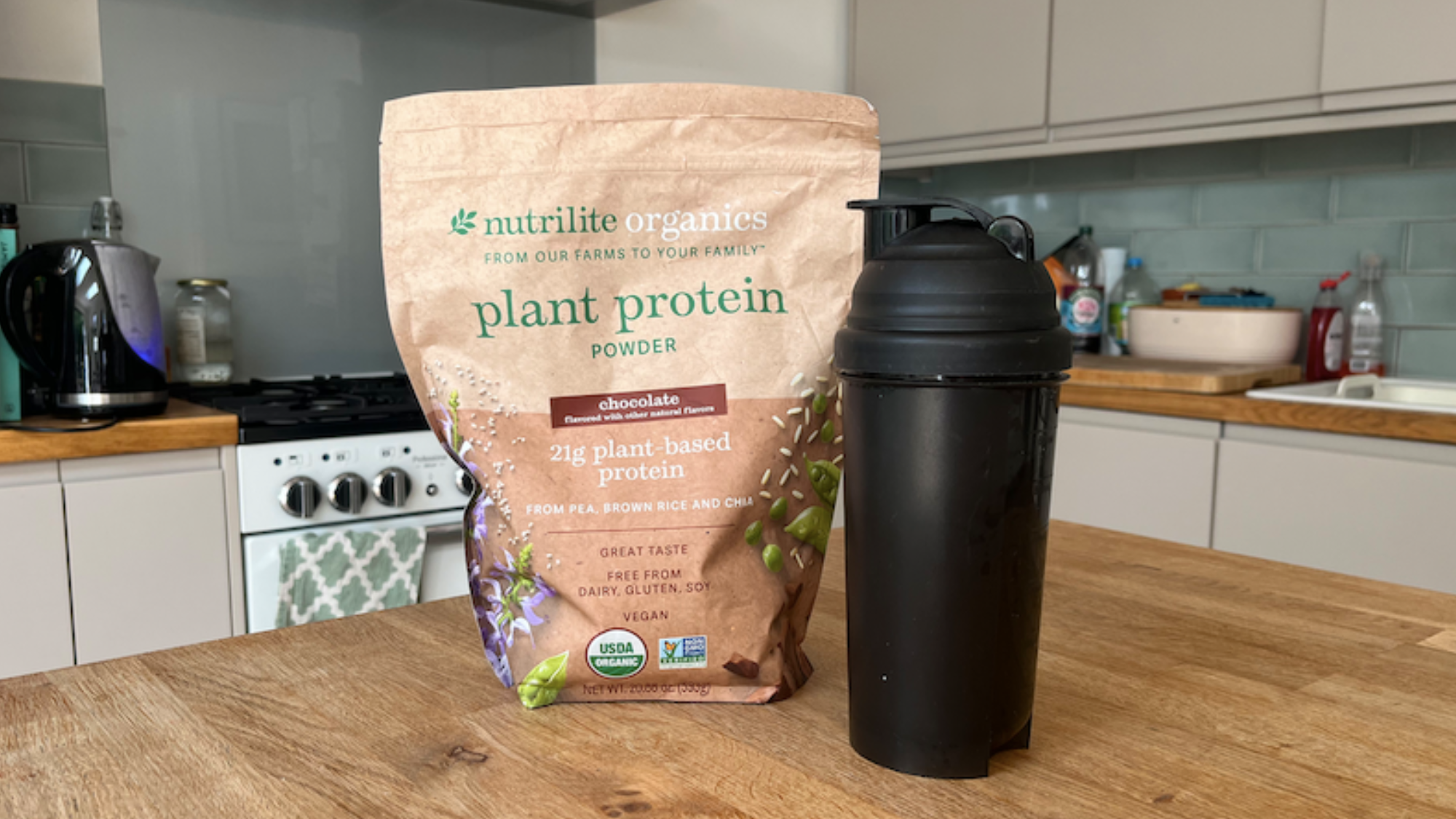
Nutrilite Organics Plant Protein powder
Specifications
Reasons to buy
Reasons to avoid
Taste, texture and mixability: I’m a big fan of the Nutrilite Organics Plant Protein powder because it’s very natural and tastes good, too. It’s easy to mix, doesn’t come out clumpy and has a creamy texture. I mixed it with both water and milk, and both tasted good with a strong flavor of dark chocolate, which I liked, as it wasn’t too sweet—in fact it has 0g of sugar. Some people might prefer a sweeter flavor. The only reason it isn't higher up this list? It has a slightly higher calorie content than most of the products I've tested.
Nutrition, ingredients and additives: The Nutrilite Organics Plant Protein protein powder (chocolate flavor) is made from pea brown rice and chia and is one of the most natural products we’ve tasted. It’s free from artificial flavors, sweeteners, dairy, gluten and soy, and made from organically grown produce (it’s certified USDA Organic). It is also enriched with vitamin D, calcium, selenium, magnesium and zinc.
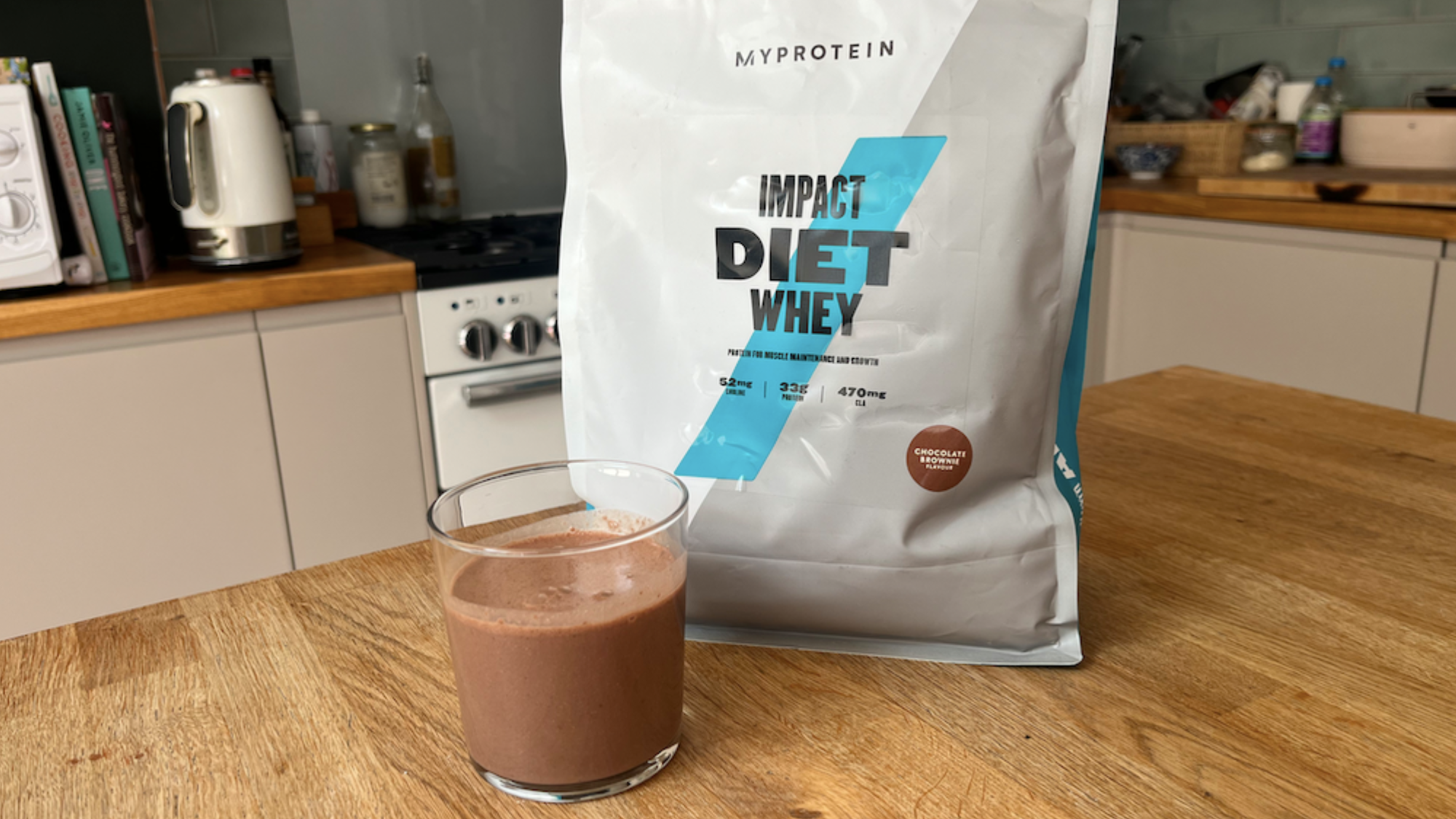
Impact Diet Whey
Specifications
Reasons to buy
Reasons to avoid
Taste, texture and mixability: I tested the chocolate brownie flavor of the Impact Diet Whey, and it mixes really easily with no clumps. It’s not overly sugary tasting, which is my preference, but it’s chocolatey enough to satisfy a sweet tooth. I tested the powder with milk and water. I prefer the milky creamy combo but it also tastes fine with water. I added it to my pancake batter and it has a deep chocolate flavor. It’s also good in oatmeal and breakfast muffins. This is a great tasting powder with a decent amount of protein, but if you’re after a low calorie powder there are better brands available.
Nutrition, ingredients and additives: For a weight loss product, the MyProtein Impact Diet Whey is surprisingly high in calories, which is why it didn’t make it into our official list at the top of this page. It is very high in protein (38g per 60g serving) but that could be because it’s recommended to have a double scoop. It comes with added L-glutamine, CLA (a fatty acid), green tea and choline (a B vitamin), which are supposed to be weight loss aids, but more research is needed to prove that. If you are trying to lose weight, these extra ingredients aren’t going to make much difference—you need to be in a calorie deficit for safe and sustainable fat loss.
How we test
- Taste, texture and mixability
I mix the powders with both water and milk, including dairy-free options (usually unsweeted almond). I also mix them into foods, including protein pancakes, oatmeal and breakfast muffins. I’ll mention how easily they blend into other products, whether or not the powders are too sweet and if they have an unpleasant aftertaste. - Ingredients analysis
I look at what goes into each of the powders and flag up any ingredients that are common allergens or aggravators for sensitive stomachs. - Nutrional value
I will take into accounts the protein content along with carb, fat and sugar content. Although these latter nutrients can form part of a healthy diet, they’re best consumed in moderation when you’re dieting for weight loss. - Scrutinizing health claims
I will flag up any additional vitamins and minerals that are included in the product and explain what their purpose is. However, I’ll also always dig into the latest studies and research around these additives, so you know how realistic health claims are. - Monetary value
I will always check the price of powders and mention its value for money, examining it on a per-serving basis.
How to choose the best protein powder for weight loss
Check for third-party certification
Dietitian Kacie Varvrek says third-party testing is one of the most important things to look out for in a protein powder. “Supplements are not regulated by the US Food and Drug Administration (FDA), so labels can be inaccurate, or supplements can contain ingredients not found on the label."
"Third-party certification is obtained when an independent organization evaluates the supplement and vouches for its quality. You will see a certification stamp on the product if a supplement is third-party tested.”
Find a product low in sugar and artificial flavors
Vavrek advises looking for a powder that is low in added sugars and artificial flavors. Some of the most popular protein shakes and powders have high levels of sugar or sweeteners mixed in, so it’s worth comparing ingredient labels before you purchase.
Pick something with a complete amino acid profile
There are nine essential amino acids we need to consume if we want to stay healthy and build muscle. You'll find this quite easily in whey protein or whey isolate powders. According to Vavrek, whey protein “contains essential amino acids and is the highest in leucine; an amino acid thought to trigger muscle building.”
Vegans might have to work a little harder to find the right balance. Even if your protein powder is listed as complete, it may contain low levels of certain amino acids, which is why you need to eat a rich and varied diet to supplement it.
Go for something tasty
Finally, Vavrek’s advice is to pick a protein powder with a taste that you actually like. There’s no point gulping something noxious back every morning in a bid to lose weight, as you’re more likely to seek out sweet or high-fat foods to make yourself feel better. A protein powder should always be an aid to weight loss, not a solution.
FAQs
Will protein powder help you lose weight?
A diet high in protein can help stave off feelings of hunger, which may result in fewer snacks and lower calorie intake at mealtimes. A study in the Journal of Obesity & Metabolic Syndrome found it can also increase metabolism, the rate at which food is turned into energy.
If you’re dieting, getting enough protein will help you sustain muscle mass while you lose weight. Moreover, studies, such as this paper on meal timing and obesity, find that higher energy intake in the morning is associated with lower levels of obesity.
Many people also replace a meal with a protein shake to speed up their weight loss. However, the Mayo Clinic advises against doing this in the long term, as it can mean that you miss out on nutritional benefits that foods contain, such as vitamins, minerals and iron.
Vavrek agrees, “Protein powders generally contain fewer nutrients than whole food protein options; so, while protein powders can help you meet your protein needs, they might not give you as many nutrients as a lean plant or animal protein source."
"Protein powders and shakes can be an easy source of high-quality protein, but it’s preferable to get most of your protein from whole foods. We do not need protein powders for weight loss.”
What is protein powder?
Registered dietitian Kylie Bensley says: "Protein powder is just a powdered form of protein made from either plants, eggs or milk. The main ingredient is typically soybeans, peas, rice, potatoes, hemp, whey, or casein. Powders can be blended with vitamins, minerals, fats, and flavors to maximize the benefit.
How much protein do we need?
"Protein needs vary widely between each individual, both men and women, based on a variety of factors," says Bensley. The National Academy of Medicine recommends that adults get about 0.8 grams of protein a day for every kilogram that they weigh. So for instance, a woman who weighs 150 pounds would need 54 grams of protein."
What's the difference between whey protein and isolate protein?
Both whey protein (sometimes called whey concentrate) and whey isolate are by-products of the cheese-making process, but the latter is more filtered to remove most, if not all, of the lactose (milk sugar). This makes whey isolate a far leaner source of protein than concentrate, therefore a good choice for people trying to lose weight.
Bensley told Fit&Well: "Whey concentrate typically has between 10-15% protein content per serving with over 50% lactose and almost 2% fat. Whey isolate on the other hand has more than 90% pure protein content and less than 1% lactose."
What are the different types of protein powder?
Pea, soy, and hemp protein are made from plant protein sources. Whey, whey isolate, and casein are made from milk/dairy protein sources, explains Bensley:
- Whey protein powder is the most commonly consumed protein powder. It is one of the fastest-digesting protein sources and can offer anywhere between 10-15% protein content per serving.
- Whey protein isolate is higher in protein and lower in fat and carbs than standard whey protein. It also contains less lactose so may be more appropriate for people with lactose intolerance and sensitivities. It tends to be more expensive
- Pea protein powder is technically a complete protein meaning it contains all the essential amino acids we need. It only contains low amounts of the methionine amino acid though, which is why it's often combined with rice protein, which has a higher amount of this particular amino acid.
- Casein is digested slower than whey protein. Casein is the other type of protein found in milk products. It provides your body with a slow, steady release of amino acids, making it ideal before fasting situations, such as sleep. It is often marketed as a protein powder to take before bedtime.
- Soy is also a complete protein derived from plant-based sources, with all the essential amino acids in appropriate ratios. If needing a vegan option, soy is ideal because the amino acid profile of soy is similar to cow's milk.
- Hemp is another complete plant protein, however it does not contain much lysine, which plays an essential role in the production of carnitine, a nutrient responsible for converting fatty acids into energy and helping lower cholesterol. It tends to be a protein that is very easy on the stomach and is often combined with other plant-based proteins.
Start your week with achievable workout ideas, health tips and wellbeing advice in your inbox.
Maddy Biddulph is a journalist specializing in fitness, health and wellbeing content, with 26 years in consumer media working as a writer and editor for some of the bestselling newspapers, magazines and websites in the US and UK, including Marie Claire, The Sunday Times and Women’s Health UK.
She is a CIMPSA-certified PT and works one-on-one with clients, as well as running Circuits Club classes which mixes cardio and strength training and chair-based exercise classes for seniors.
